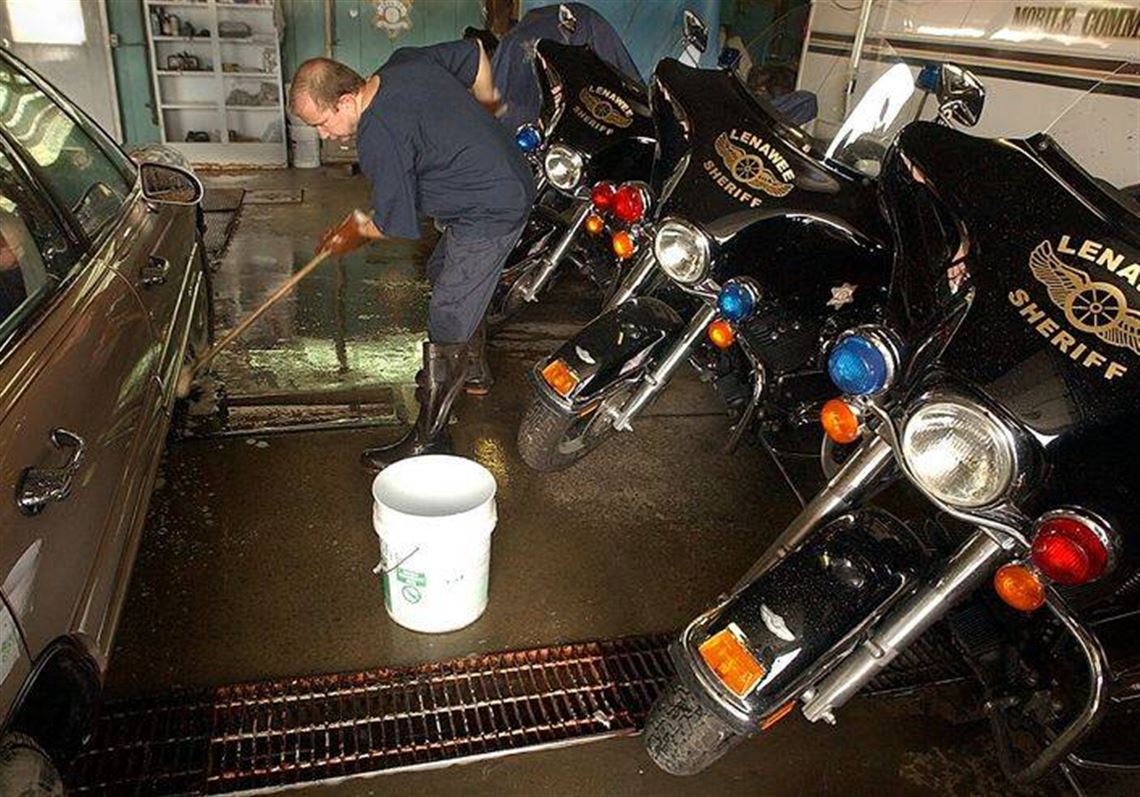The days of filing papers and dusting church pews are over for some Lenawee County offenders sentenced to community service.
In an effort to keep repeat nonviolent offenders out of the courts, the county's law enforcement community has devised a plan to make community service a tough and dirty job.
Gone are the days of street cleaning crews wearing orange vests. Plans for this program include striped uniforms, an armed guard, and the most strenuous - and smelly - work community has to offer.
“As I've said before, dusting pews in the church is not an incentive to not drink and drive again,” Dick Bailey, a county commissioner, said. “If you have to go to the compost and open plastic bags of grass clippings on a summer day, it's not a pleasant thing.”
Sheriff Larry Richardson likes the idea, and said it will offer law enforcement another tool in keeping overcrowding down at the jail.
“Basically, we're going to be getting some work done around town and, hopefully, the program will be degrading enough and tough enough that they won't want to come back,” the sheriff said.
Judge James Sheridan of Lenawee County District Court, a member of the group that proposed the plan, said the program will not replace any work-release or community-service sentences.
Instead, it adds another layer of sentences - one designed specifically for offenders who normally would serve short jail sentences.
The county has a community-service program for misdemeanor and first-time offenders. To date, the county's only work release program is privately run.
The judge said the proposed program - estimated to cost about $100 to pay for the guards' salaries - would save the county thousands of dollars normally spent on jail stays. In Lenawee County, it costs about $35 a day to house an inmate.
The program would charge the individual $15 a day and would not require the participants to stay at the jail unless they violated the rules of their sentence.
“The object is to come up with alternative ways of having negative consequences for people that would be the same impact as if they were incarcerated but would cost less and would encourage them not to recommit offenses,” the judge said. “We don't want fluff stuff, we want something that would have an impact on behavior.”
Mr. Bailey, who is chairman of the Criminal Justice Committee, said depending on the type of work the participants are given, they aactually may prefer a cell.
First Published September 2, 2003, 10:47 a.m.


